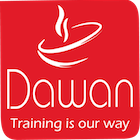Goals
- Know how to improve your SEO
- Use Google Ads
- Optimize your strategy on social networks
- Use Google Analytics
Program
- Advanced SEO: Improve the optimization of your website -
What are the objectives of SEO
Understanding how search engines work
How are the SERPs evolving?
Work on your content marketing
Identify keywords
Optimize your text content
Optimize your media
Use Rich Snippets
Workshop: Validate the relevance of your site
Understand the domain name and page rating system
Create quality backlinks
Work your local SEO
Anayser your popularity and that of others
Optimize your tree structure: work in silos, pagination, etc.
Detect and correct 404 errors
Create and test redirects
Monitor the loading time of your pages
Work in AMP for mobiles
Work on the user experience on your site: the SXO
Analyze the SEO performance of the site
See web users’ requests
Check the status of indexing and its xml sitemaps
Check the correct functioning of robots.txt
Detect a penalty
Validate the correct configuration of Rich Snippets
Workshop: Handling in the Google Search Console platform
Use Google Analytics with Google Search Console
Content
analysis
tools Popularity analysis tools Crawl and log analysis tools
Workshop: Connect to other analysis tools
Define your priorities
Follow the evolutions of SEO and « Cores Updates »
Questions / Answers
Duration
5 days
Price
£ 3125
Audience
Webmasters, marketing or communication managers
Prerequisites
Have followed the 1st e-marketing week or have equivalent knowledge
Reference
E-M813-F
- Google Ads Initiation -
Define your objectives
Know the main evolutions of the platform
Know how to identify the different types of campaign
Understand the statistics according to the types of campaigns
What are the parameters to define in a campaign?
How to organize your ad groups?
What keywords to remember? For what targeting?
Optimize your ads (text, banners, videos, etc.)
Target the main and secondary keywords
Use the keyword planning tool in Google Ads
Plan a quantity of clicks according to the keywords selected
Identify the bid to place for a keyword
Understand the types of matches on the keywords
Define a organization into ad groups and campaigns
Workshop: Create a list of keywords for a research campaign
Configure your Search campaign: budget, location, planning, etc.
Enter ad extensions
Create ad groups and insert keywords
Create optimized ads: responsive ad and large format text ads
Preview ads directly in Google Ads
Workshop: Create a research campaign according to your activity
Identify impressions, clicks, costs …
See what Internet users searched for
See performance according to geographic areas
Analyze the days and times of appearance
Workshop: Analyze statistics on your campaign
Developments in research campaigns
Define what to work as a priority
Questions / Answers
- Google Ads Deepening -
When to adjust an auction or its budget? Rewrite an ad?
Monitor your keyword quality level
Customize your ads: retrieve the Internet user’s request, set a timer …
Define bidding adjustments
Refine geographic and temporal targeting
Exclude search keywords
Compare yourself to the competition
Workshop: Identify areas for improvement in your research campaigns
Understand the principle of conversions
Configure conversions in Google Ads
Link conversions to your website
Import conversions from Google Analytics
Configure your Display campaign
Define your audience and / or content targeting
Create a responsive display ad in Google Ads
Know which tools to use to create a more interactive banner
Pool a budget for multiple campaigns
Use remarketing within Google Ads
Exclude keywords and location for all campaigns
Change bidding strategy
Use video campaigns for Youtube
Promote your products with Shopping campaigns
Take advantage of Gmail to disseminate your offer through GSP campaigns
Create analysis reports and schedule sending by email
Establish a link between Google Ads and Google Analytics
Use dynamic ads (DSA)
Define automatic rules
Use Google Ads Editor
Adapt your campaigns to your advertising objectives
Analyze and research areas for optimization
Questions / Answers
- Social networks deepening: Optimizing your work on social networks -
Define a social strategy
Overview of the main social networks
Best practices for a community manager
Create impactful content
Create engagement with your community
Check statistics on your page
Discover Facebook Creator Studio
Workshop: Analyze the statistics of your Facebook page
Define which action to highlight
Set up audience targeting Provide
a duration and a budget
Analyze the performance of the boost
Workshop: Activate a boost on a publication
Learn more about people connected to Facebook thanks to Audience Insights
Import and manage your product catalog for Facebook
Consult more advanced statistics
Create your Facebook pixel
Use the Creative Hub
Understand the organization of a campaign in Ads Manager
Configure an advertising campaign
Define your advertising package: targeting, location and budget
Create and distribute your advertising
Go through remarketing
Workshop: Create an ad on Facebook
Take advantage of the Facebook network to distribute your advertising on Instagram
Distribute your advertising on Twitter
Manage your advertising campaigns on LinkedIn
Optimize your social profile
Identify your prospects
Get in touch with your prospect
Convert your prospect into a customer
Discover prospecting tools on LinkedIn
Discover social network management tools – Multicasting
Be alerted as soon as someone talks about their brand
Better understand their audience
Stay informed of developments in social networks
Synthesis
Questions / Answers
- Google Analytics: Analyze the performance of a website -
What should be analyzed on a website?
Identify your KPIs
Install Google Analytics
Understand the interest of the tool
Interaction between Tag Manager and Analytics
Install Google Tag Manager
Deploy your Google Analytics account via Google Tag Manager
Understand the organization of reports
Choose your analysis period
Define your analysis segments
Understand the dimension / statistics relationship
View statistics by user
Cohort analysis
View user flow
Perform benchmarking
Identify the main channels
Analyze the search engines (which engines? Which keywords?)
Natural traffic VS paid traffic
View Treemaps reports
Check your netlinking
Link with Search Console and Google Ads
Track your emailings
Visualize the Internet user’s journey
Identify the research carried out
Create events: analyze the clicks on a link, the submissions of a form, etc.
See on which pages the events were triggered
A / B testing – Test several variations of a page with Google Optimize
Create a conversion
Analyze your conversions
Attribution models
Direct vs. indirect conversions
Identify the main conversion paths
Setting up an e-commerce site
Define your analysis period correctly
Compare two periods
Use the system segments
Create a segment
Filter the reports obtained
Workshop: Create custom segments and filters
What is a personalized report?
Build a personalized report
Use dashboards
Define an automatic email sending
Workshop: creation of several reports for different profiles (Traffic Manager, Marketing Manager, Manager)
Synthesis
Questions / Answers
Passing of the certification (if foreseen in the financing).
Sessions
Contact us for more informations about session date





